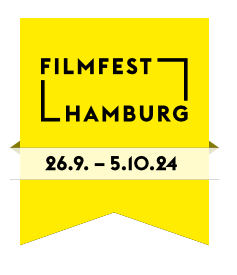contemporary Cinema in Focus
Gegenwartskino im Fokus
IMPORTANT VOICES OF CONTEMPORARY CINEMA
Since 2019, FILMFEST HAMBURG’s annual “Contemporary Cinema in Focus” format has highlighted the work of two of the currently most exciting voices in world cinema who are still less well-known in Germany. The filmmakers – one man and one woman, ideally from two continents – were invited to present their films and working methods in in-depth discussions. In addition to the most recent titles, shows of earlier films completed the programme.
2023
Alice Rohrwacher (Italy), Bertrand Bonello (France)
2022
Ruth Mader (Austria), Santiago Mitre (Argentinia)
2021
Andrea Arnold (UK), Sean Baker (USA)
2020
Kelly Reichardt (USA), Pablo Larraín (Chile)
2019
Céline Sciamma (France), Lav Diaz (The Philippines)







